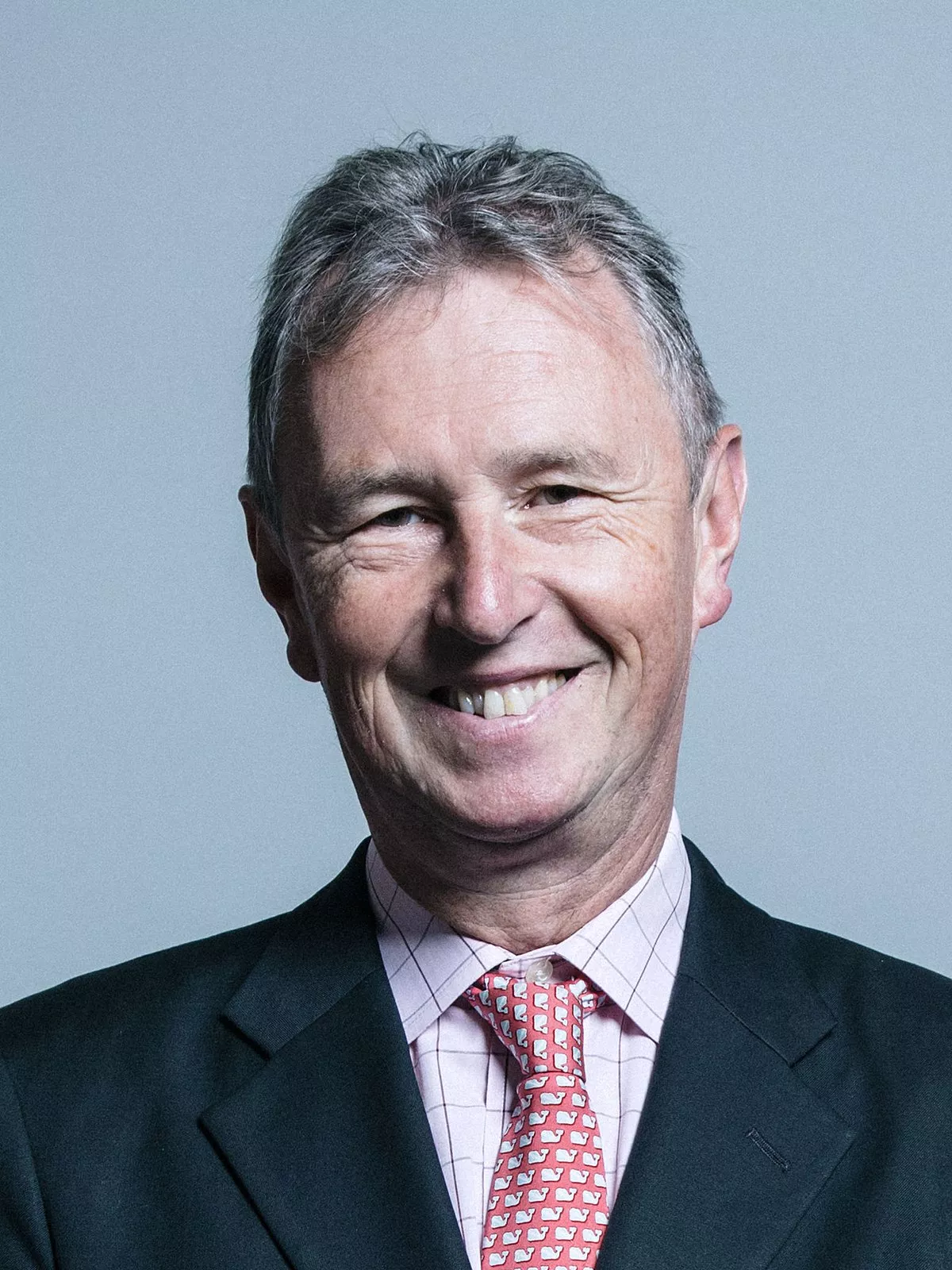 1.
1. Nigel Martin Evans was born on 10 November 1957 and is a former British Conservative Party politician who served as the Member of Parliament for Ribble Valley in Lancashire from 1992 until 2024.

 1.
1. Nigel Martin Evans was born on 10 November 1957 and is a former British Conservative Party politician who served as the Member of Parliament for Ribble Valley in Lancashire from 1992 until 2024.
Nigel Evans was Joint Executive Secretary of the 1922 Committee from 2017 to 2019.
Nigel Evans served as First Deputy Chairman of Ways and Means, one of the Speaker's three deputies, from 2010 to 2013.
Nigel Evans was elected as Second Deputy Chairman of Ways and Means in 2020.
Nigel Evans has since been supportive of Leave Means Leave, a Eurosceptic campaign group and backed Boris Johnson for Prime Minister.
Nigel Evans thereafter refrained from campaigning on issues such as Brexit in order to fulfill his role as one of the deputy speakers, until he lost his seat in 2024.
Nigel Evans was born on 10 November 1957 in Swansea.
Nigel Evans was educated at Dynevor School, and then went to Swansea University, where he gained a BA in politics in 1979.
Nigel Evans was involved in the management of his family's newsagent's and convenience store in Swansea.
In 1985, Nigel Evans was elected as a councillor to the West Glamorgan County Council.
Nigel Evans was selected to contest the 1989 Pontypridd by-election, following the death of Brynmor John.
Nigel Evans stood in the 1991 Ribble Valley by-election, caused by the resignation of David Waddington to become the Leader of the House of Lords in 1990.
Nigel Evans was appointed as the Parliamentary Private Secretary to Secretary of State for Employment David Hunt in 1993, and remained Hunt's PPS when he was appointed Chancellor of the Duchy of Lancaster in 1994.
In 1995, Nigel Evans became the PPS to Tony Baldry the Minister of State at the Ministry of Agriculture, Fisheries and Food in 1995, and in 1996, he became the PPS to the new Secretary of State for Wales William Hague.
Nigel Evans became a member of the Shadow Cabinet after the election under Iain Duncan Smith as the Shadow Secretary of State for Wales from 2001 to 2003.
Nigel Evans had publicly criticised the government for not having a dedicated Secretary of State for Wales in a cabinet post, so when the new Conservative leader Michael Howard decided to take the role outside of the Shadow Cabinet, Evans chose to return to the backbenches.
Nigel Evans became a member of both the Trade and Industry and the Welsh Affairs Select committees in 2003.
In November 2004, Nigel Evans was appointed a Vice-Chairman of the Conservative Party, with specific responsibility for overseeing Conservatives Abroad and mobilising the Conservative vote overseas.
Nigel Evans returned to the back benches on the election of David Cameron as party leader in 2005, deciding to dedicate more time to his work on the Council of Europe and Western European Union.
Nigel Evans has been a member of the Culture Media and Sport Select Committee since 2005.
In November 2009, Nigel Evans was ranked as the 570th most expensive MP out of the 646 MPs in the UK Parliament, based on his expenses claims.
Nigel Evans responded by saying that the comments were made in jest.
On 8 June 2010, Nigel Evans was elected First Deputy Chairman of Ways and Means, and a Deputy Speaker of the House of Commons.
Nigel Evans ran for re-election in the 2024 United Kingdom general election.
Nigel Evans was acquitted of all charges on 10 April 2014.
On 18 December 2010, following the death of his 86-year-old mother, Nigel Evans revealed to The Mail on Sunday that he was gay.